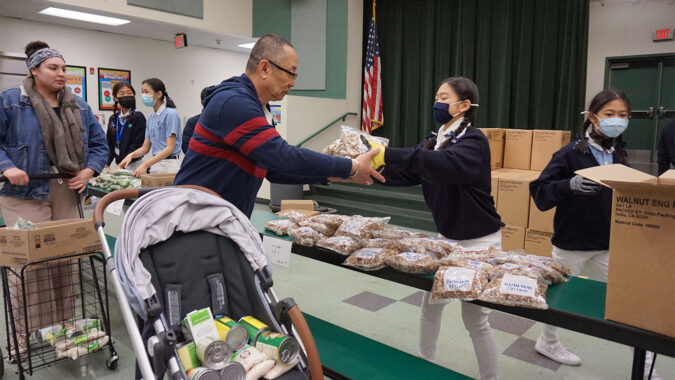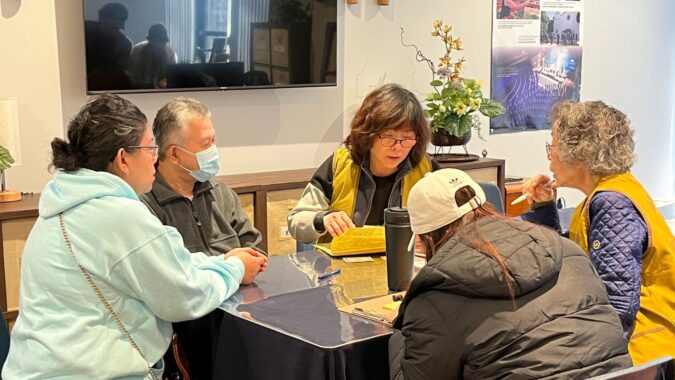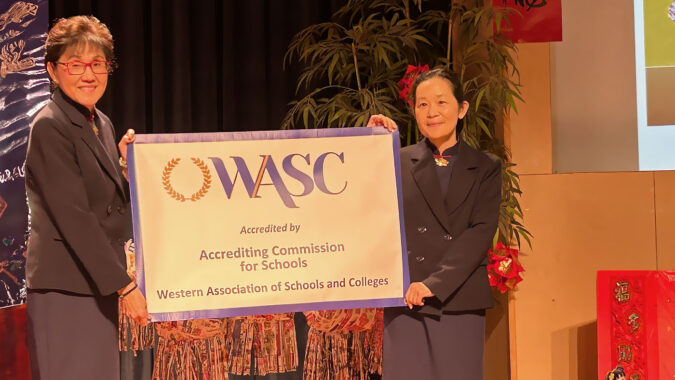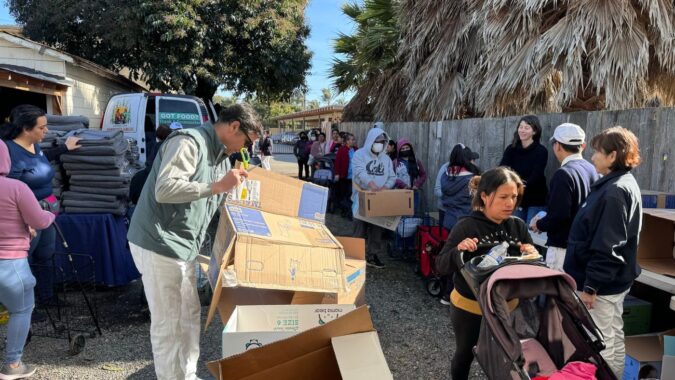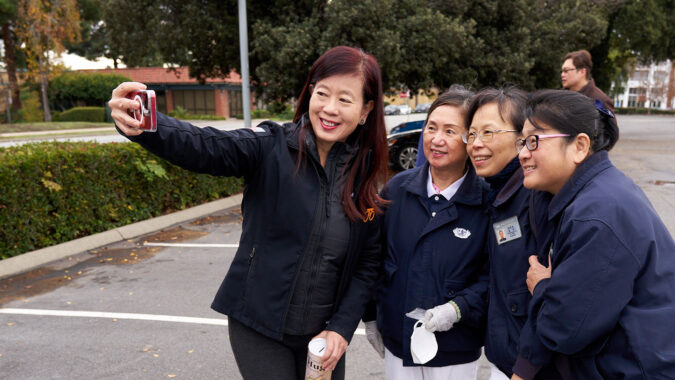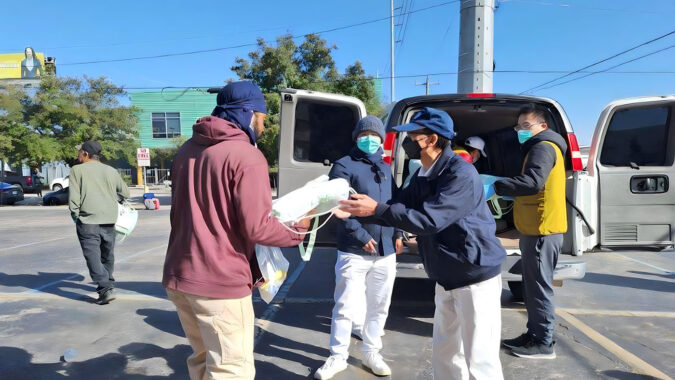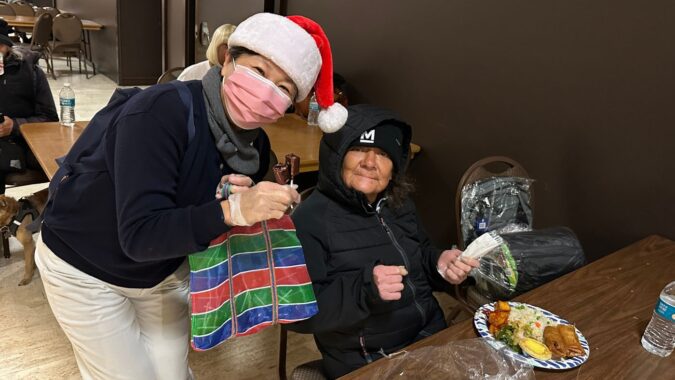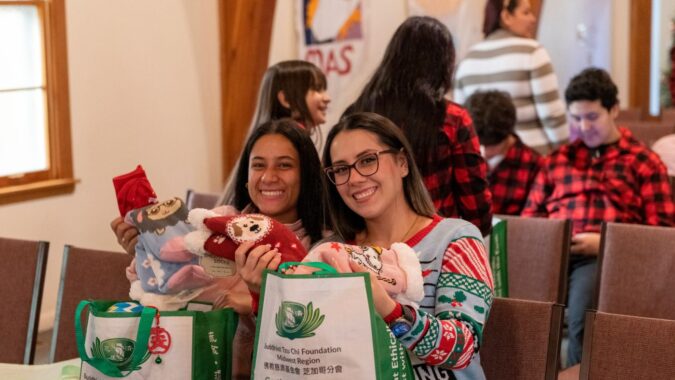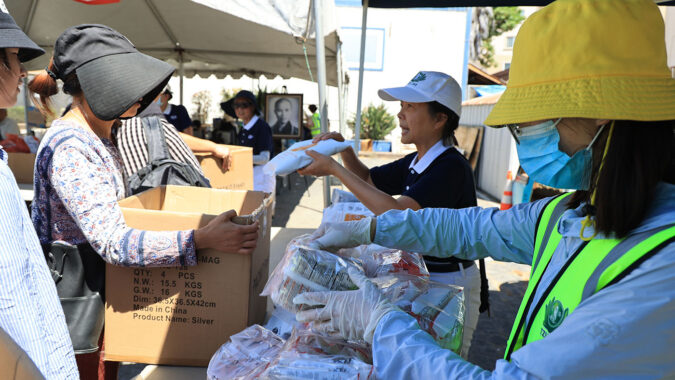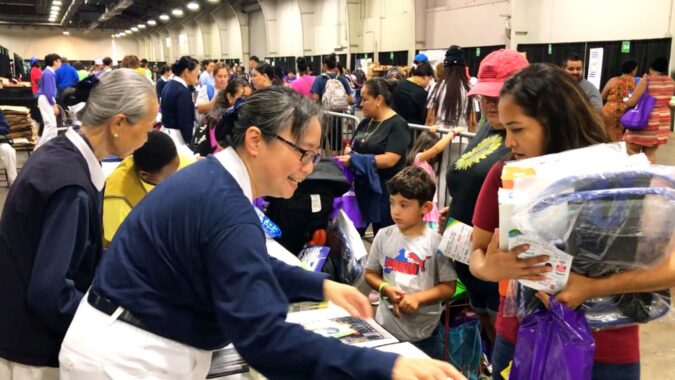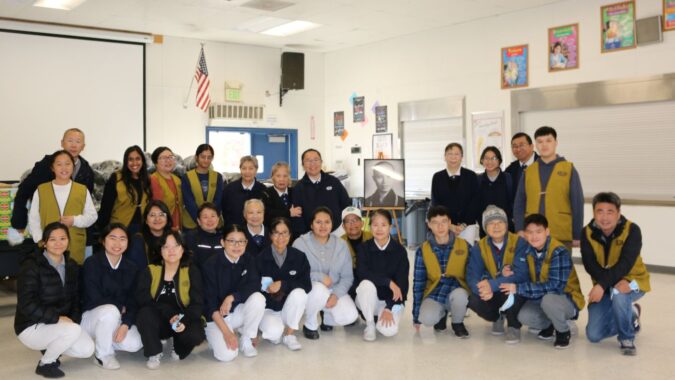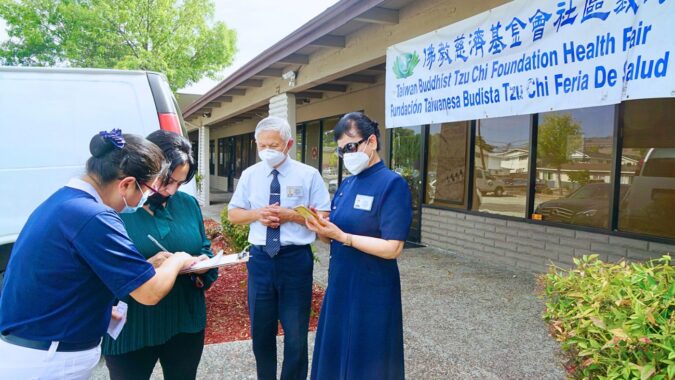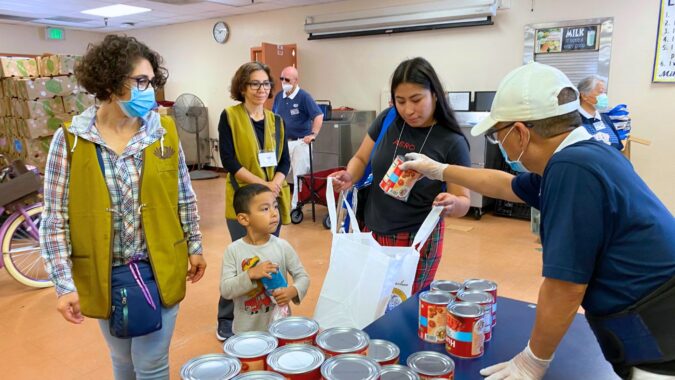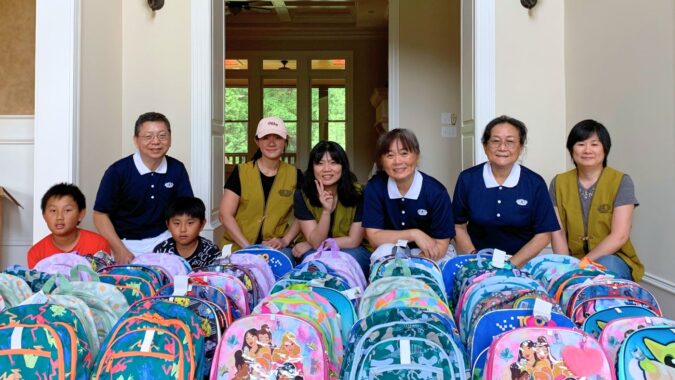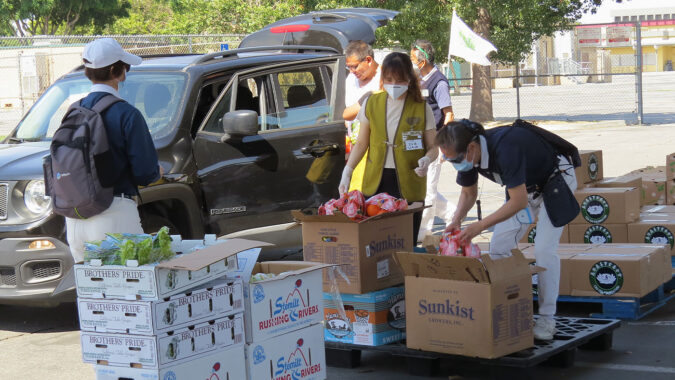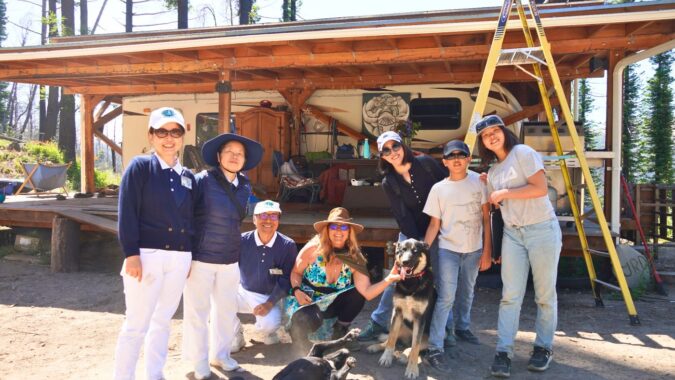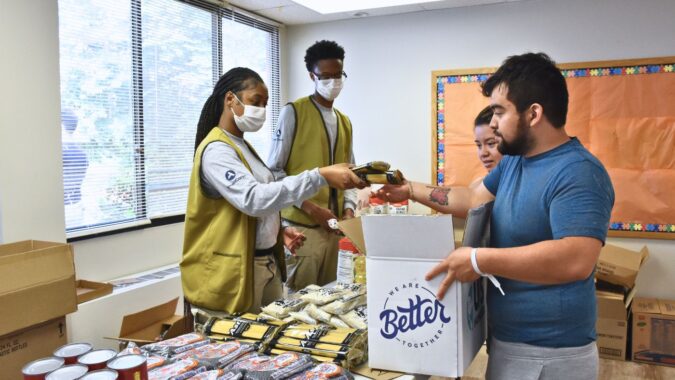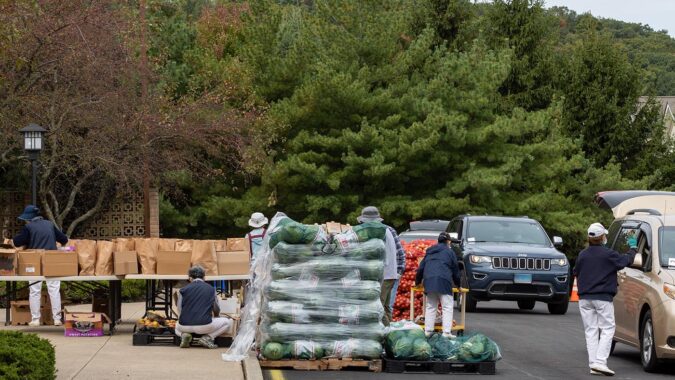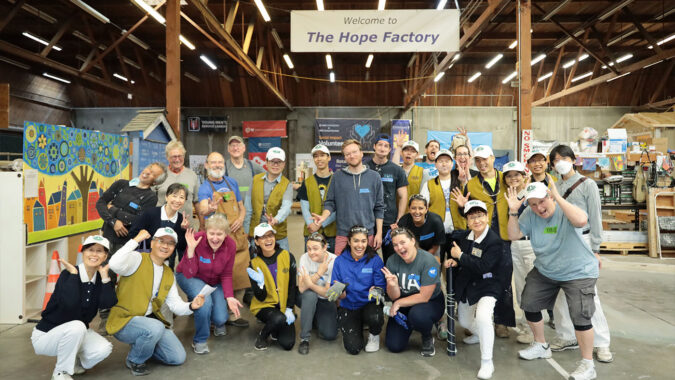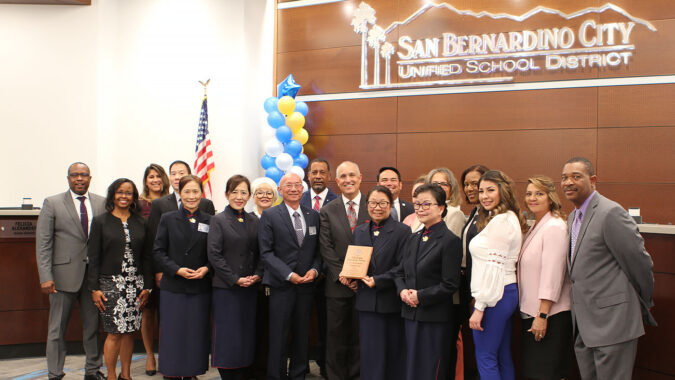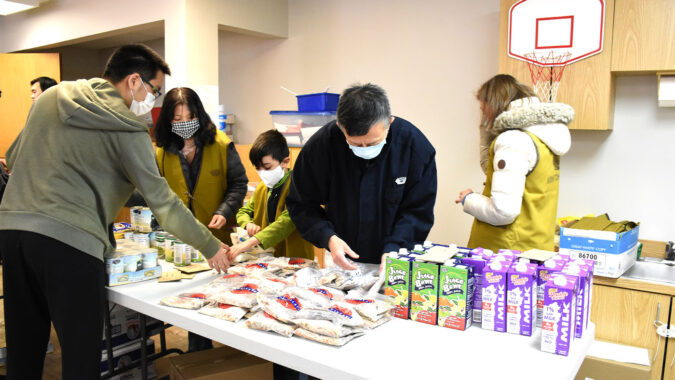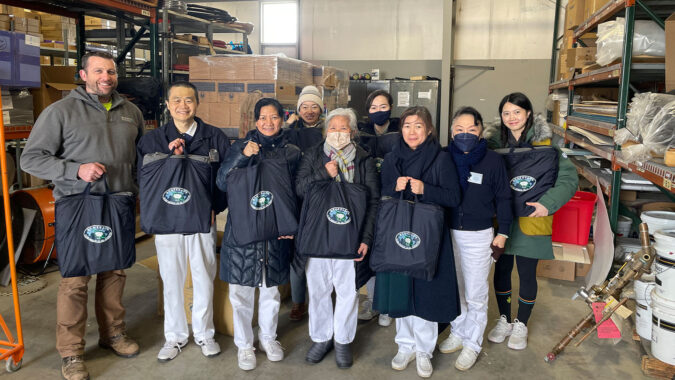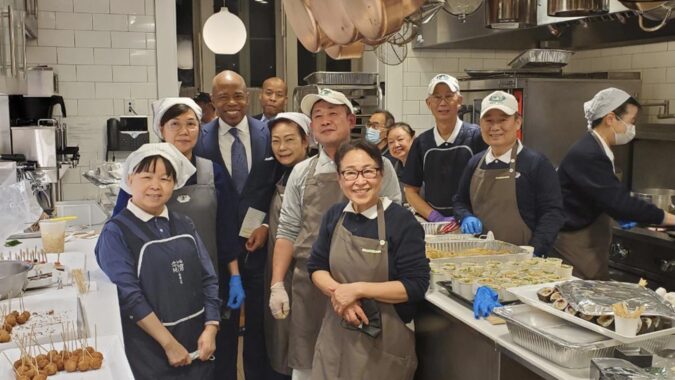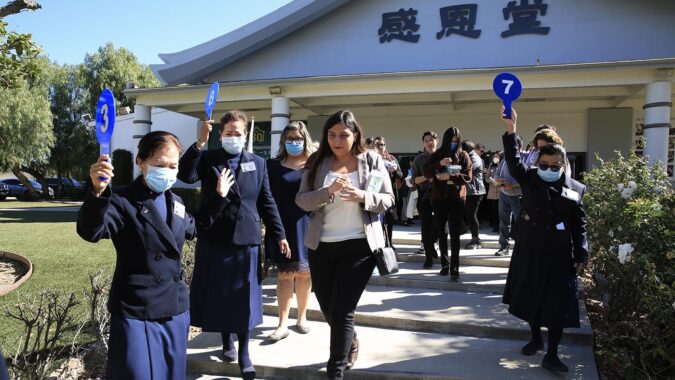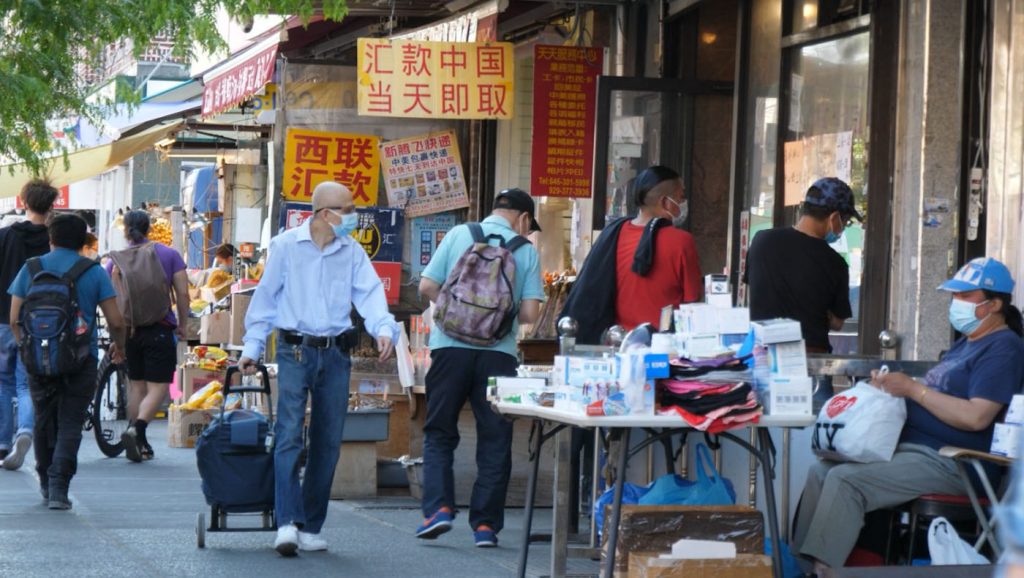
Translated by Mask Wan
Edited by Ida Eva Zielinska
“The pressure for me is not as great as what I might otherwise feel because I have this 1,800 square feet apartment with two big rooms and a small one, one of which I rented out,” Lanying Wang said. The recent immigrant from Fujian province in Mainland China busied herself with cooking in a small kitchen. Just one step away, sitting at a dinette table, her son haphazardly devoured a Fujian style zongzi (rice dumpling), akin to a tamale with sticky rice, his eyes affixed on an iPad as he followed an online course.
A small living space shared by several families and a tiny kitchen that equally serves as a place for kids to study online are the household conditions for many new Fujian immigrants like Lanying. It’s a balancing act, as they’re caught between a struggle to fulfill offspring’s immigration dreams and a filial duty to support aging parents living oceans away, having to grin and bear the hardships of life in a strange land.
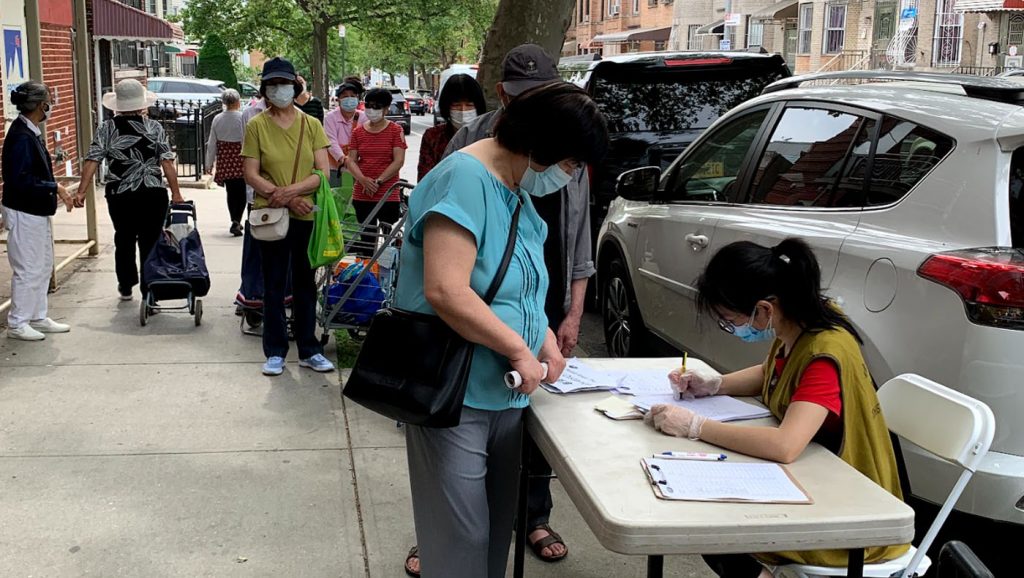
“The men go out of state for work and return once a week, so it falls upon us mothers to take care of kids. Not knowing any English when we go out, I constantly feel tired, and I don’t mean housework is tiresome, it’s just that I feel even more tired having to try and communicate in English,” Lanying shared.
For more than ten years, the number of people emigrating from Fujian province to the United States has grown, with many coming from the province’s capital, Fuzhou. Most of those arriving in New York City choose Brooklyn as the new place to settle. Thus, new arrivals feel at peace being around familiar faces and shops and can get quite an eyeful and earful of their former homeland along Brooklyn Avenue.
Walking along the Chinese stretch of the avenue, Min Ren, also a recent Fujian immigrant, feels right at home. She happily describes how the neighborhood is “full of eateries, employment agencies, clothes shops, food stalls, all crowded together, with most people you bump into having faces of Fuzhou.”
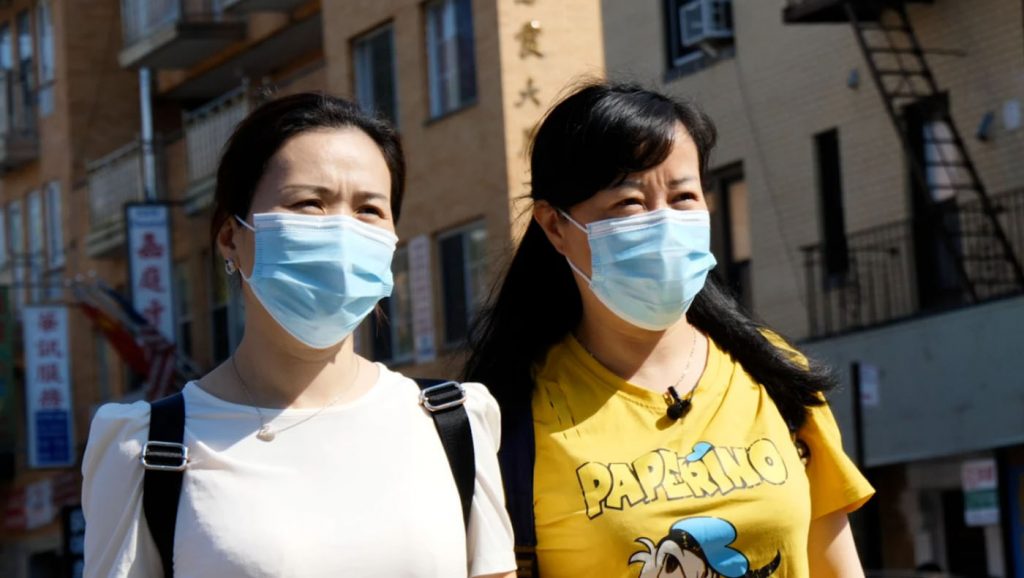
Min immigrated to America with her family of five. Being around the same age as Lanying, the two often go grocery shopping together, talking about their kids and families, supporting each other in daily life. Their friendship deepened after the two close friends decided to go to Tzu Chi USA Northeast Region’s Brooklyn Service Center together and become volunteers. “We need to do something for the community,” they decided. Min added that “I came to know Lanying even better in Tzu Chi, and realize that she’s one of the best volunteers!”
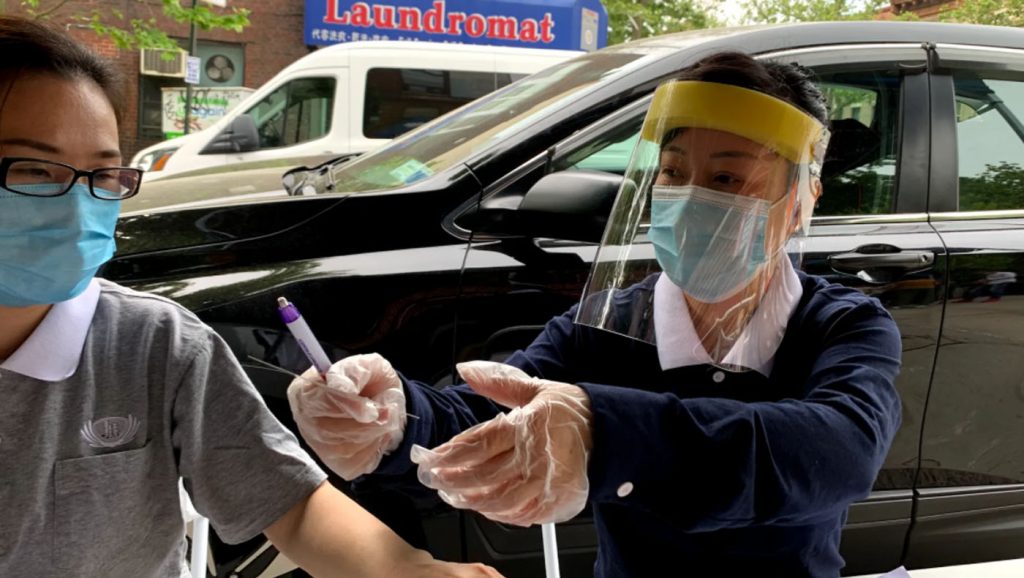
In response to the economic challenges posed by the COVID-19 pandemic for many families, in July 2020, the Brooklyn Service Center began providing distributions of fruit and vegetables once a month. As a result, more and more community residents are finding out about Tzu Chi. The day before distributions, Lanying and Min are often in charge of contacting recipients to guarantee that the amount of food prepared is accurate to the number of people coming to reduce waste.
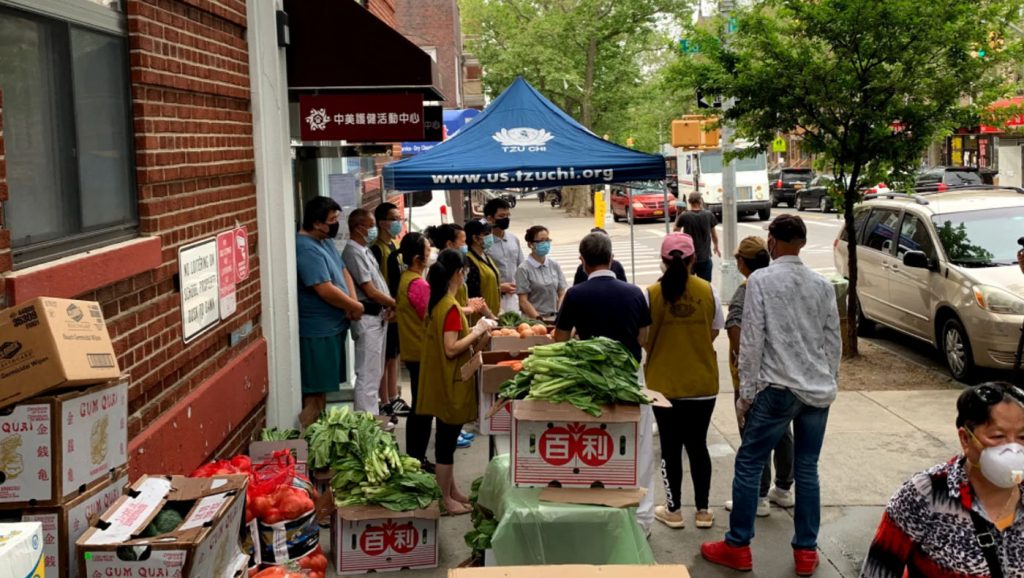
Building New Connections in a New Land
“Currently 70% of residents in this particular [Brooklyn] community are of Fuzhou origin,” Peiling Lei and her husband Kaixing Lin, who immigrated to the U.S. from China’s Guangdong province, remarked. The recent influx of families from Fuzhou posed a bit of a cultural challenge to this couple. Yet the excellent rapport they naturally establish with people attracts many from Fuzhou to begin volunteering with Tzu Chi too.
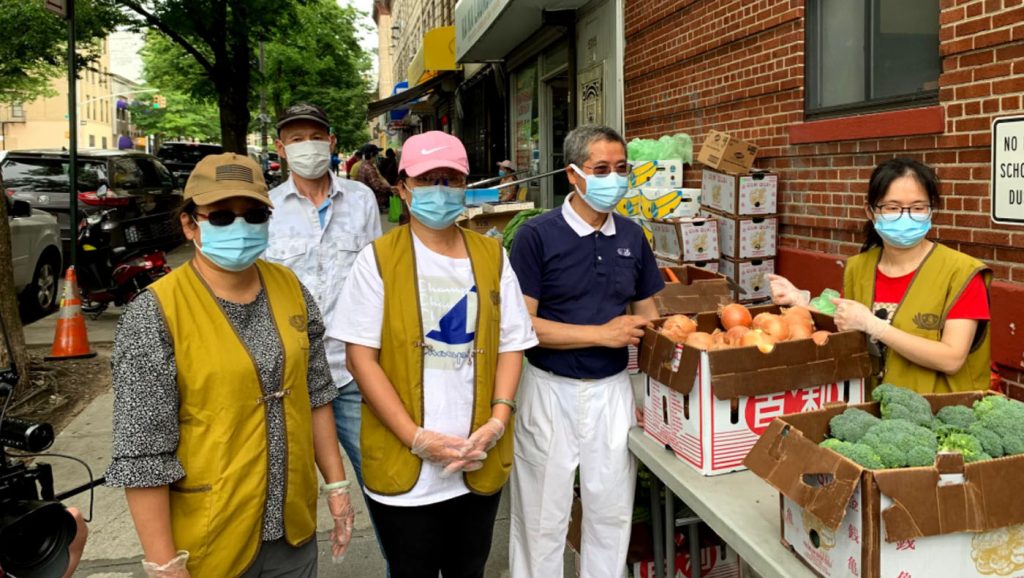
“They initially came to receive food. After seeing us here, they subsequently came to help,” Peiling and Kaixing shared. Now, the couple helps get new volunteers familiarized with Tzu Chi distribution culture and protocol before each event.
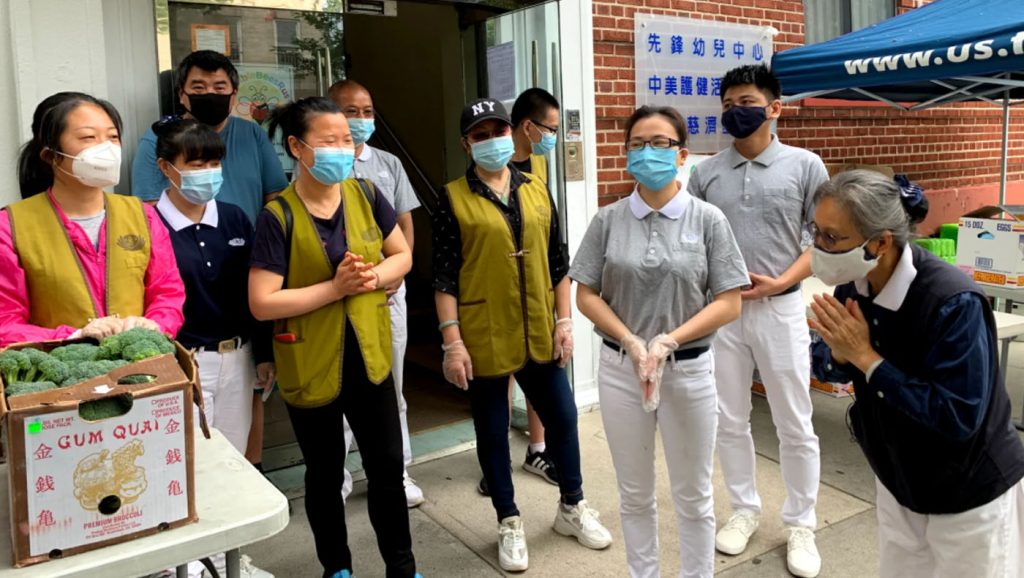
“The act of distributing involves a gesture to the recipient of slightly bowing with palms of hands pressed together, why? Because we thank them for giving us a chance to contribute,” Peiling says, demonstrating how to do it to the new volunteers, her voice filled with hope and strength.
These recruits as a new force are enthusiastic, kind, and sometimes starry-eyed. After taking time to converse, we encourage those who have the right temperament to come more often and assist at distributions.
Peiling Lei, Tzu Chi Volunteer
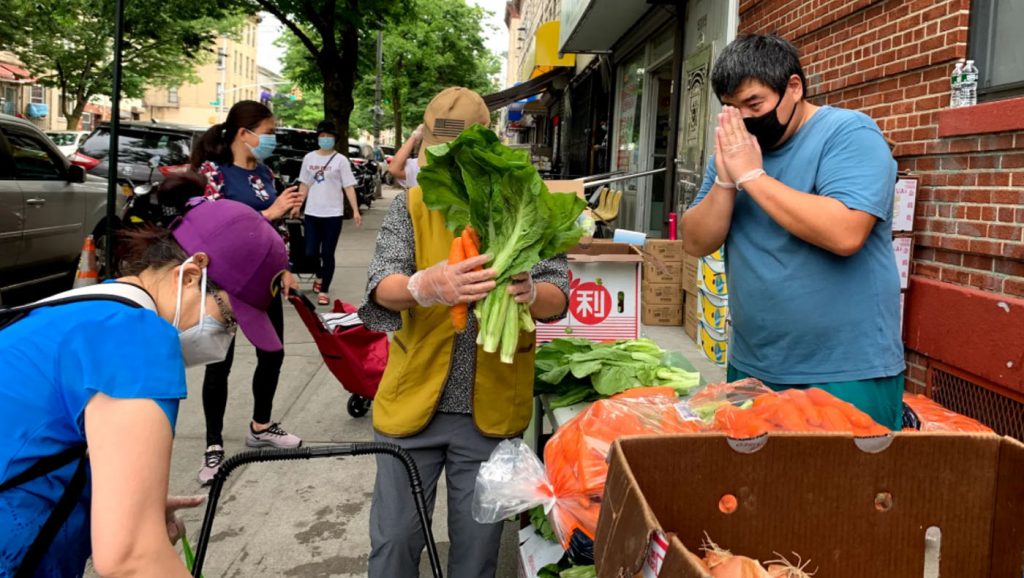
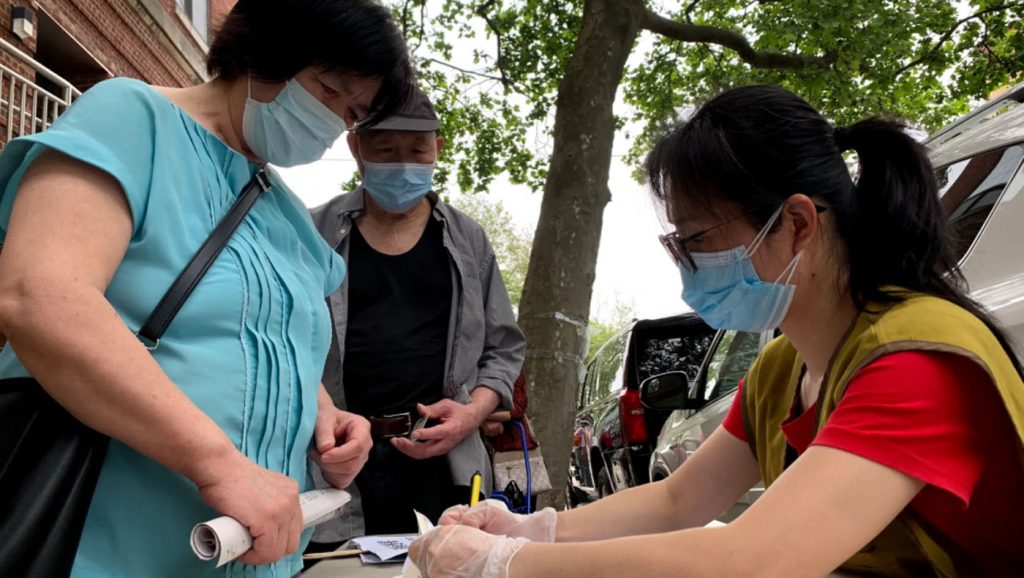
The Force of Inspiration
As volunteers, Lanying Yang and Min Ren started in the “Loving Mommy” role at a Tzu Chi Humanities class in Brooklyn.
My son learned how to be respectful, so did my daughter learn to respect and help others. Therefore, no matter how busy I am or how late I work, I always participate in whatever Tzu Chi’s projects are at the moment.
Lanying Wang, Tzu Chi volunteer
As their kids gain a stronger social conscience because of Tzu Chi, both moms focus more and more on Tzu Chi as well.
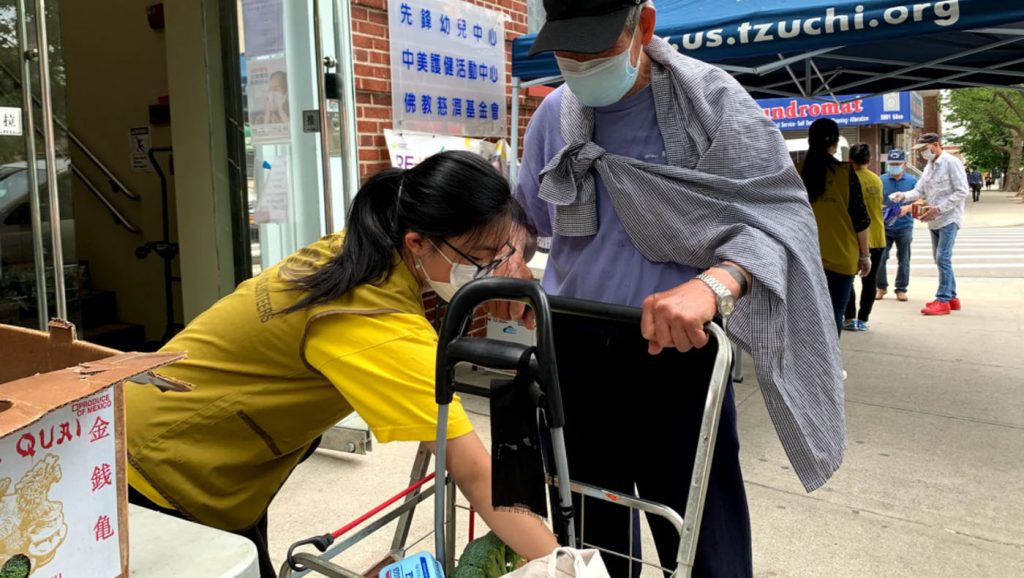
After close to six years in Tzu Chi, I feel the important thing about it is that you develop a sense of belonging, with life feeling less burdensome and happier, not as worrisome as before.
Min Ren, Tzu Chi volunteer
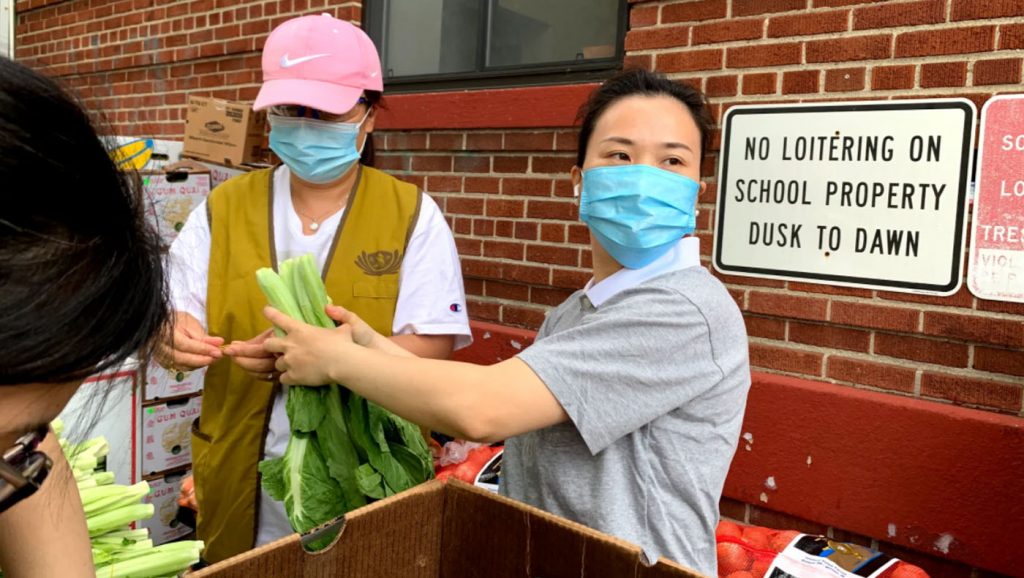
As Tzu Chi volunteers in Brooklyn serve the community, providing vital aid, they also inspire others onto the path of social service, thus widening the circle of those who practice compassion in action while bringing relief to those in need. And, among recent immigrants, they facilitate new bonds in a new land, creating companionship to ease the longing for their original homeland.
We invite you to join Tzu Chi’s circle of assistance and care providers, through your support.

